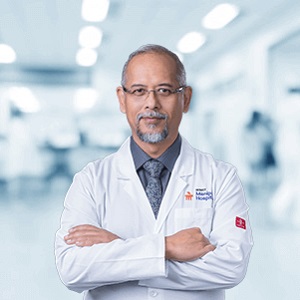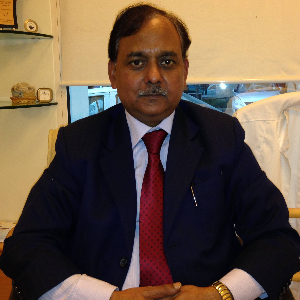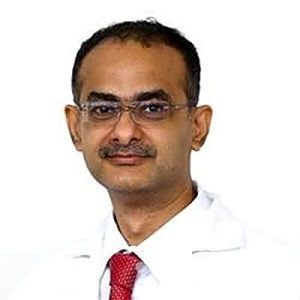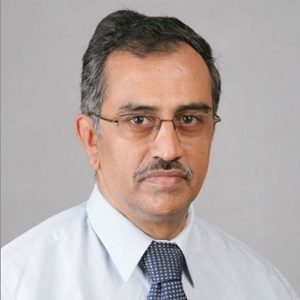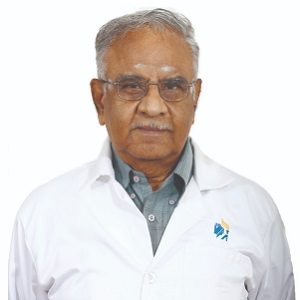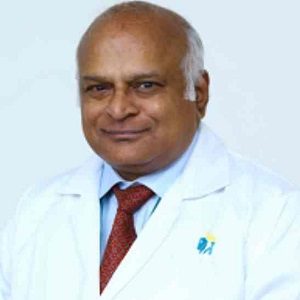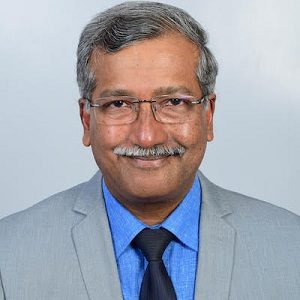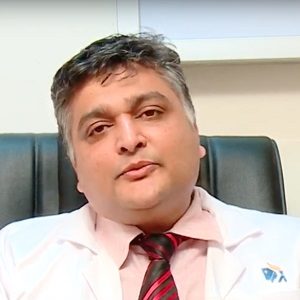Best Doctors in India for Penile Implants
- Urologist, New Delhi, India
- Over 20 years’ experience
Profile Highlights:
- Dr. Sanjay Gogoi is a renowned Urologist with over 20 years of experience, He is an expert in minimally invasive transplant techniques of Laparoscopic and Robotic-Assisted Transplantation.
- He is also trained in Robotic surgery at da Vinci Training Center, Intuitive Surgical, California. With over six years of experience in doing Robotic Cancer surgeries on the Kidney, Bladder, Prostate, Adrenal, etc., Dr. Sanjay Gogoi is an expert in Robotic reconstructive procedures of kidneys, ureters, and bladder, as well, as in adults as well as pediatric patients.
- Urologist, New Delhi, India
- Over 35 years’ experience
Profile Highlights:
- Dr. Anant Kumar is one of the finest urology and kidney transplant doctors in India.
- Dr. Kumar specializes in Kidney Transplantation, Robotic Assisted Laparoscopic Urology, Renovascular Hypertension, Laparoscopic Urology, Urological Oncology, Laser Urological Surgery, and Reconstructive Urology.
- He has performed over 3500 kidney transplants and over 2000 lap donor nephrectomy procedures over the span of 3 decades.
- Nephrologist, Gurugram, India
- Over 15 years’ experience
Profile Highlights:
- Known as one of the best nephrologists in the NCR region, Dr. Manish Jain holds a special interest in renal transplants as well as clinical nephrology.
- His compassionate patient care and lifestyle advocacy have helped patients recover from various disorders.
- Throughout his career, Dr. Manish Jain has published several papers in India and is also a member of several medical associations.
- Urologist, Chennai, India
- Over 15 years’ experience
Profile Highlights:
- Dr. Deepak Raghavan is a renowned urologist who has gained immense fame and praise in the few years of his career.
- He is specially trained in Robotic Surgery, the need of the hour for Urology patients.
- Pediatric Urologist, Chennai, India
- Over 25 years’ experience
Profile Highlights:
- Dr. Sripathi is a renowned surgeon with 25 years of experience in the field of Pediatric Urology.
- Dr. V Sripathi qualified for the award of the “Fellowship of the Royal Australasian College of Surgeons” (FRACS) after working in Perth and Melbourne, Australia.
- He completed his Pediatric Urology training with a brief stint at the King Faisal Specialist Hospital & Research Center in Riyadh, specializing in advanced Reconstructive Urology.
- Urologist, Chennai, India
- Over 45 years’ experience
Profile Highlights:
- Dr. Duraisamy S is one of the best Urology surgeons and General physicians in South India with more than 45 years of experience.
- Dr. Duraisamy considers his profession a special mission, a devotion that calls for involvement, respect, and willingness to help others.
- He published several papers on UTI, uterovaginal fistula, ureteric diverticulum, and Endoscopy in reputed medical periodicals.
- Urologist, Chennai, India
- Over 39 years’ experience
Profile Highlights:
- Dr. Murali Venkatraman is a Senior Urologist from India with vast experience.
- Being a fellowship holder in Laparoscopic Urology, he specializes in Laparoscopic Urology.
- Dr. Venkataraman is serving for the last 39 years and has received many awards and recognitions for his contribution.
- Urologist, Chennai, India
- Over 37 years’ experience
Profile Highlights:
- Dr. Thirumalai Ganesan Govindasamy is a well-known Urologist of India.
- He has interests and specializations in Laparoscopic and Robotic Urology, Robotic and Laparoscopic Donor Nephrectomy, Urethral Reconstructive Surgery, Per-cutaneous Nephrolithotomy, and Flexible Ureteroscopy.
- Serving his patients for almost 37 years, Dr. Govindasamy has gained enough recognition and trust from his patients and has cured many people of severe illnesses.
- Urologist, Chennai, India
- Over 21 years’ experience
Profile Highlights:
- Dr. Nitesh Jain is an experienced urologist in Tamil Nadu, having managed complex urological diseases.
- Dr. Nitesh has grabbed a gold medal in Surgery during MBBS and M.Ch Urology.
- Dr. Nitesh Jain also got training in robotic surgery from Roswell Park Cancer Institute, Buffalo, USA.
Best Hospitals in India for Penile Implants
Fortis Hiranandani Hospital, Mumbai
- City: Mumbai, India
Hospital Highlights:
- Fortis Hiranandani hospital was established in 2007.
- The hospital is an advanced tertiary care, multi-specialty hospital equipped with 149 beds.
- The hospital is equipped with a super ICU to provide emergency medical care to critically ill patients.
- The hospital is NABH accredited.
- The critical care facility in the hospital is augmented with the state-of-the-art facilities that facilitate speedier diagnosis and efficient monitoring.
- The hospital provides specialty medical services in cardiology, orthopedic science, pediatric science, neurology, diabetic care, urology, nephrology, ENT, obstetrics, gynecology, cosmetic surgery, bariatric surgery, neuro and spine care.
Fortis Hospital, Anandpur, Kolkata
- City: Kolkata, India
Hospital Highlights:
- Fortis Hospital, Anandapur, Kolkata is a world-class super-speciality equipped with the latest technologies in the medical world.
- The hospital is NABH accredited.
- This state-of-the-art facility specializes in cardiology and cardiac surgery, urology, nephrology, neurosciences, orthopaedics, digestive care, emergency care and critical care.
- The hospital, governed by integrated Building Management System (IBMS), has a pneumatic chute system, for quick vertical and horizontal transportation between floors, facilitating speedy transfer of patient specimens, documents, reports, and medicines to the concerned departments.
- The hospital also has a nephrology department with over 28 advanced dialysis units.
Fortis Hospital Banerghatta, Bengaluru
- City: Bengaluru, India
Hospital Highlights:
- Fortis Hospital Bannerghatta, Bengaluru was established in 2006.
- The hospital is a 276 bedded multi-specialty tertiary care facility.
- The hospital specializes in cutting-edge medical technology and dedicated patient care services.
- The hospital is equipped with state-of-the-art technologies like trans-radial angioplasty, trans-abdominal cardiac surgery, and computerized TKR navigation surgery.
- The hospital provides specialty medical services in cardiology, cardiac surgery, orthopedics, neurology, neuro-surgery, GI, and Minimal Access Surgery (MAS).
Fortis Hospital, Malar, Chennai
- City: Chennai, India
Hospital Highlights:
- Fortis Malar was established in 1992 and was formerly known as Malar Hospital.
- The hospital specializes in cutting-edge medical technology and dedicated patient care services.
- The hospital is multi-specialty, tertiary care facility with 180 beds.
- The hospital offers comprehensive medical care in specialties such as cardiology, cardio-thoracic surgery, neurology, neurosurgery, orthopedics, nephrology, gynecology, gastroenterology, urology, pediatrics, and diabetes.
Gleneagles Global Hospital, Parel, Mumbai
- City: Mumbai, India
Hospital Highlights:
- Gleneagles Global Hospital The 450-bed facility comprises of 17-stories, housing state-of-the-art infrastructure, and advanced medical care facilities.
- The hospital offers end-to-end clinical, surgical, and diagnostic services. It is equipped with a team of eminent medical professionals aided by qualified nurses and medical staff
- The Hospital offers advanced Endoscopic procedures, Hepatobiliary and Liver Surgeries, Surgical and Medical Gastroenterology, Bariatric Surgery, and Robotic surgery.
- The hospital is a center of excellence for Orthopedics, Joint Replacement, Knee Replacement, and Hip Replacement surgery.
Manipal Hospital, Dwarka, Delhi
- City: New Delhi, India
Hospital Highlights:
- Manipal Hospitals, Dwarka, is a super-specialty hospital in Dwarka, New Delhi, which is a part of Manipal Hospitals Group.
- The hospital aims to provide the best treatment on par with international standards at a fraction of the cost.
- Equipped with 380 beds, the hospital is also one of the new age hospitals which are equipped fully with state-of-the-art infrastructure, cutting-edge technology as well as the latest and advanced clinical practices. The hospital also has 13 modular Operation theatres with 118 beds which are solely meant for critical care.
- The hospital comprises internationally acclaimed doctors and highly professional and experienced hospital and medical staff who are able to provide preventive, therapeutic, and diagnostic services all under one roof.
Paras Hospital, Gurugram
- City: Gurugram, India
Hospital Highlights:
- Paras hospital was established in 2006 and is the 250 bedded flagship hospital of Paras Healthcare.
- The is supported by a team of doctors of international and national repute.
- The hospital is NABH accredited and also the first hospital in the region to have a NABL accredited laboratory.
- The hospital provides specialty medical services in around 55 departments including Neurosciences, Joint Replacement, Mother & Child Care, Minimal Invasive Surgery, Gynecology and Obstetrics, Ophthalmology, Dermatology, Endocrinology, Rheumatology, Cosmetic and Plastic surgery.
- The hospital is equipped with state-of-the-art technologies.
S L Raheja Hospital, Mahim, Mumbai
- City: Mumbai, India
Hospital Highlights:
- SL Raheja hospital is a 140-bed multi-specialty tertiary care hospital that is being managed by Fortis Healthcare Ltd.
- The hospital is a benchmark in healthcare and medical facilities in the neighborhood of Mahim & the western suburbs.
- L.Raheja Hospital, Mahim has one of the most effective ICU and Casualty care services.
- The hospital provides specialty medical services in Cardiology, Oncology, Neurology, Orthopedics, Mother & Child Care, and in Diabetes.
Wockhardt Hospitals, Mumbai
- City: Mumbai, India
Hospital Highlights:
- Wockhardt Hospitals were established in the year 1973, originally called First Hospitals and Heart Institute.
- Wockhardt Hospitals are super specialty health care networks in India, nurtured by Wockhardt Ltd, India’s 5th largest Pharmaceutical and Healthcare company.
- Wockhardt Hospitals is associated with Partners Harvard Medical International, an international arm of Harvard Medical School, USA.
- Wockhardt Heart Hospital performed India’s first endoscopic heart surgery.
- The hospital has a state-of-the-art infrastructure equipped with the latest technologies and modern equipment.
- It has special Centers of Excellence dedicated to the major specialties to provide hassle-free and high-quality clinical care.
Pushpawati Singhania Hospital & Research Institute, New Delhi
- City: New Delhi, India
Hospital Highlights:
- Established in 1996, Pushpawati Singhania Research Institute is one of the top hospitals in the NCR region, as well as one of the top facilities in India for gastroenterology. The hospital is one of South Asia’s first institutes in medical and surgical treatment for diseases related to digestion.
- The hospital is equipped with state-of-the art facilities coupled with the latest equipment as well as renowned consultants from various parts of India as well as other parts of the world.
Penile Implants
Penile implants, the devices which are implanted inside the penis so that men suffering from erectile dysfunction are able to get an erection. This treatment is recommended after the condition doesn’t respond well to any other type of treatment.
Penile implants are implanted through a penile implant surgery, where the prosthetic device is placed inside the penis and scrotum. This device can help the man have an erection again and regain sexual function. There are two main types of implants viz., semirigid and inflatable. Each work differently having its own pros and cons.
Purpose
Most men are able to treat their erectile dysfunction quite successfully with the use of a medications or a penis pump. Penile implants are considered when other treatments fail to help you get an erection for sexual activity.
It is to be noted that penile implants are not recommended for everyone. Your doctors might caution against them, if you are having situational erectile dysfunction, which is potentially reversible. If you are suffering from diabetes which you are unable to control well or an infection such as a urinary tract infection or pulmonary infection, then your doctor might recommend against penile implants as well.
It is also to be noted that though penile implants are able to allow men to get an erection again, they cannot increase one’s sexual desire or sensation. Penile implants also won’t be able to make your penis larger than it naturally is.
Types
Penile implants are of two main types:
Inflatable implants- Inflatable devices are the most common type of penile implants used. They can be inflated when an erection is required and kept deflated at other times. It involves placing two cylinders in the penis, a fluid-filled container in the abdomen and an inflatable pump in the scrotum. All of these are connected by a special tubing.
Squeezing the pump in the scrotum causes the fluid to move from the container into the cylinders, which creates an erection. When you squeeze the release valve, fluid is able to move out of the cylinder and back into the container which makes the penis flaccid again.
When inflated, this type of implant acts as well as feels like a natural erection. The implant feels natural and comfortable when it is in the flaccid state as well.
Semirigid rods- Semirigid devices are always firm. During sexual activity, the penis can be bent away from the body and towards the body at other times. They can also be set in different positions easily.
Even though using them is quite easy, some men may find their constant rigid state to be comfortable.
Preparation
Before the surgery, your doctor might recommend you to stop taking certain medications. This can include aspirin and anti-inflammatory drugs, as they can increase the risk of bleeding.
Penile implant surgery usually involves an overnight stay at the hospital. See if you can arrange for a ride home in advance.
Before your surgery, don’t consume any food or drink after midnight. If your doctor gives you any specific instructions, it is important that you follow them.
Procedure
Penile implant surgery is generally performed at a hospital or surgery center. You will first receive general anesthesia that will make you unconscious during the surgery. In some cases, spinal anesthesia is also used. This kind of anesthesia blocks pain in the lower part of the body.
You will also receive IV antibiotics as it can help to prevent infection. The surgery site will also be shaved before the surgery to reduce any risk of infection.
Then a catheter might be inserted into your bladder through the penis to collect urine. Your surgeon will next make an incision below the head of the penis. He/she might also choose to make the incision at the base of the penis in the lower abdomen.
Next, he/she will stretch the spongy tissue in the penis that would normally fill with blood during an erection. This tissue is known as the corpora cavernosa. Your surgeon will then decide the correct size of implant before placing it. Then he/she will place the implant cylinders inside the penis.
If a two piece inflatable device is being implanted, then your doctor will also place a pump and a valve inside the scrotum. For a three-piece device, your doctor will need to implant a fluid reservoir under the abdominal wall through an internal incision.
After the device is implanted, your surgeon will sew the incisions closed. Penile implant surgery can generally take up to an hour or two.
Recovery
Sometimes an overnight stay at the hospital might be required, though many men are able to go home the same day. After the procedure, you will need to take pain medication to help with discomfort and antibiotics to prevent any infection.
Your doctor will provide some additional instructions, which can include any of the following:
- Waiting for at least a month after the surgery before resuming any sexual activity
- When you will be able to resume your work, physical activity and exercise.
- Keeping the penis pointed towards the belly button and prevent it from being curved in a downward direction
Your doctor will also let you know when your stitches will be removed. He/she might recommend some exercises as well, that should help in your recovery.
Risks
A penile implant surgery comes with few risks, which include:
- Infection- Infection is possible, as with any surgery. If you have a spinal cord injury or diabetes, you might be at an increased risk of infection.
- Implant problems- Though penile implant designs are mostly reliable, in some rare cases the implants might malfunction. When such cases occur, surgery is necessary for repairing or replacing a broken implant.
- Internal Erosion or Adhesion- Sometimes, an implant can stick to the skin inside the penis or wear away the skin from inside the penis. In rare cases, an implant can also break through the skin. Such problems can sometimes lead to an infection.

